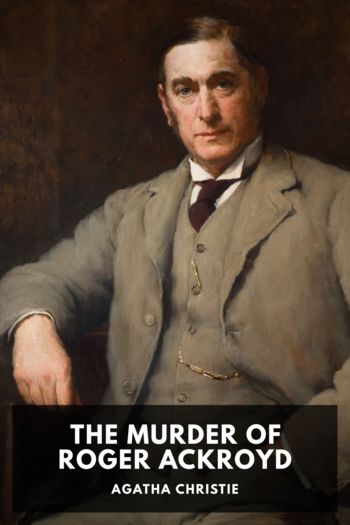The Clerkenwell Tales Peter Ackroyd (nice books to read TXT) 📖

- Author: Peter Ackroyd
Book online «The Clerkenwell Tales Peter Ackroyd (nice books to read TXT) 📖». Author Peter Ackroyd
He had taken up a wafer for a farthing and, as he bit into its crisp baked surface, he asked himself a question. What is the quantity of this night? He was teaching himself geometry or art-metricke. This day the sun was 21 degrees and six minutes of Taurus, a good day for the sinews and the heart. It was well known that the world was created at the vernal equinox, and that God first made mankind in the month of April; so this season was filled with magical properties. But was it a good night for experiment? Emnot practised alchemy in the hours of curfew, making sure that all the windows of his lodging were covered with black cloth so that the burning coals could not be seen. It was he who had manufactured the gunpowder, and had brought it to Richard Marrow in the green shed outside the walls.
“This is good powder,” he had said to him. “You take two ounces of your sal petre and half an ounce of your brimstone, and temper them together in a mortar with your red vinegar. Do you smell the brimstone? Then you add your sal ammoniac and your nitre blended with small coals. That accounts for its blackish cast. You dry it in your earth pan over a soft fire and, when it is well dried, you grind it until it becomes this small powder. It is so small that it can be put through a sieve! There is no coal that serves better than the coals of the lime-tree.”
These were also the coals which he used in his pursuit of alchemical gold. He was not an avaricious man. He was always eager, and curious, but not greedy. He had no conception of worldly things and, like the salamander of legend, lived only in the fire of his imagination. He had calculated his nativity as that time when the sun was in Gemini and a little from his declination in Cancer; this was the period of Jupiter’s exaltation, thereby confirming to Emnot that his life would be one of study and of learning. The worth of the gold did not concern him, therefore; it was the pursuit itself that pleased him. As one of the predestined men, he believed himself to be singularly blessed in all his operations and did not doubt his ability to create gold out of inferior substances. It was a question both of meditation and of calculation, of locking all the forces of the world into one pattern. When the sun grows old and in his hot declination enters Capricorn and shines pale, then begins the work. When the spheres were in alignment with his own bodily humours, when the elements of the base matter were calcined and revived in proportion to the eight and twenty mansions which belong with the moon, then the radiant hour would enter his alembic.
Emnot loved number and pattern. He had tried to devise a geometry for the movement of pigeons in the yard below his tenement; he calculated the chances of seeing the same stranger more than once in a certain street; he looked into the night sky, and tried to divine the distance between each of the nine spheres. That is why he was so powerfully convinced by William Exmewe’s image of the circles which were part of some larger circle; it corroborated all that he thought and believed. Emnot Hallyng was always eager, always active; he licked the egg and cheese off his fingers before running up the stairs.
Something was crouched in a corner, waiting for him there.
“Whoa! Who are you? Why are you here in the darkness?”
“It am I. Gabriel.”
Gabriel Hilton, a jeweller by trade, was Emnot’s cousin. They had attended school together, at St. Anthony’s in Threadneedle Street, after which Gabriel had gone into his father’s business and Emnot had been enrolled at Oxford. Emnot’s sponsor was the late Bishop of Ely, who had surmised by various signs that he was one of the predestined and had trained him accordingly. Emnot became known in the family as “the clerk of Oxenforde,” and was often gently ridiculed for his pale face and spare frame; it was widely remarked that he was even leaner than his horse. Yet he was clever and quick-witted. It had been he who taught Gabriel Hilton the properties of the stones which he sold. He told him, for example, that the diamond must always be worn on the left side; its strength was always growing to the north, which is the left side of the world. If an emerald was kept with little pieces of rock, and watered with the dew of May, then it would grow. An amethyst gave hardiness and manhood. A sapphire kept the limbs of the body whole. Agate protected its wearer from evil dreams, enchantments and illusions of wicked spirits. If venom or poison were brought into the presence of the ruby, it became moist and began to sweat. He taught Gabriel, too, that all of these stones could lose their virtues through the sin and incontinence of those who wore them.
“What wind has guided you here, cousin? I have not seen you in a long time.” Emnot took his cousin by the shoulder. “Quick. Come in. Take off your overslope. Sit.” Then he noticed Gabriel’s face. “Have you seen harm?”
“Yis. There is harm approaching me. Of that I am certain.”
“Sit.”
“Emnot, you know the sliding science very well?”





Comments (0)